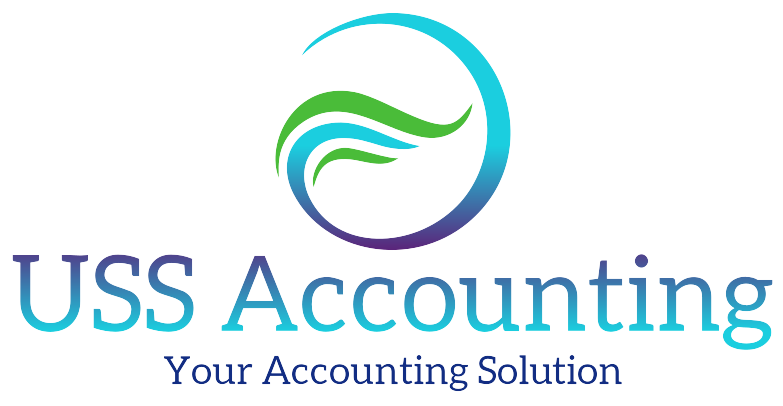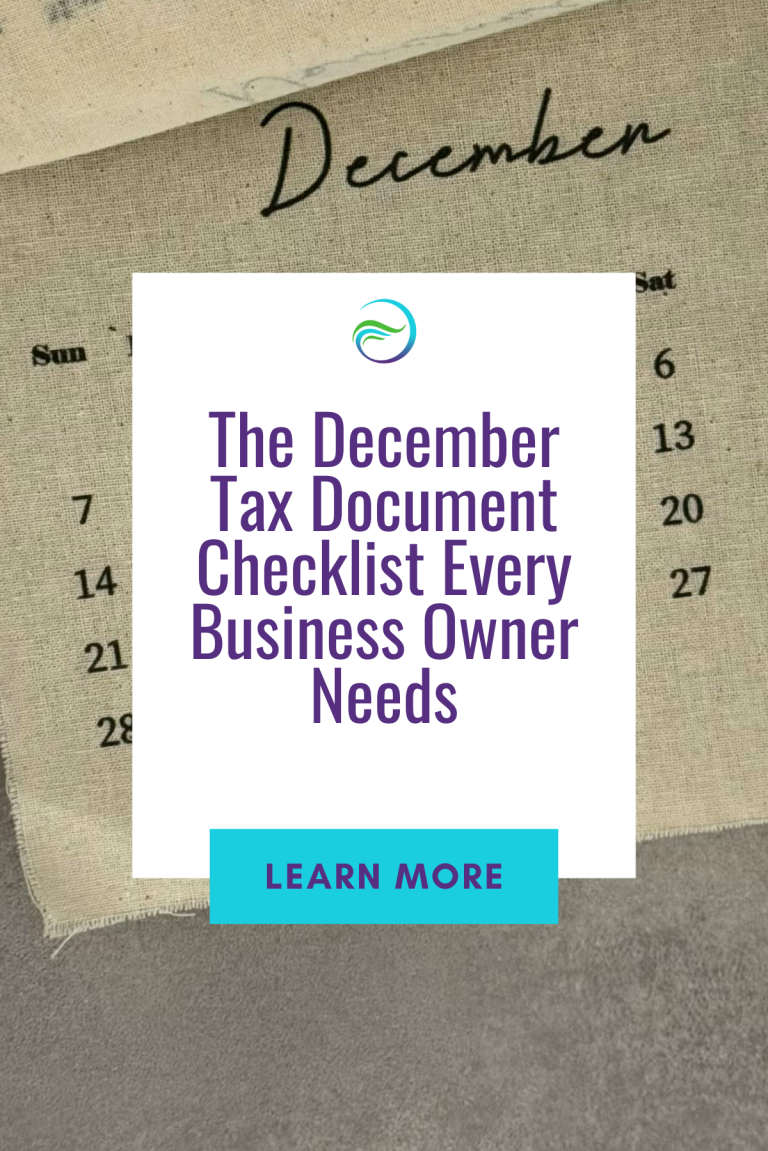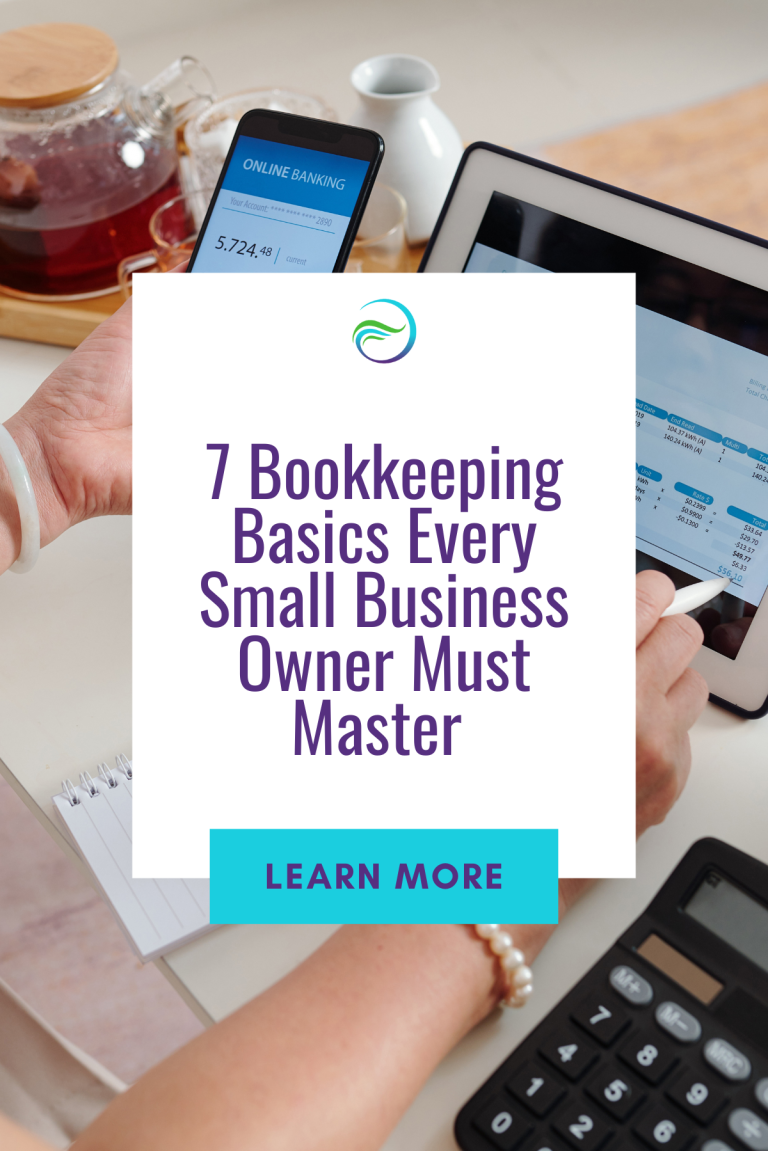
The $75,000 Question Every Business Owner Faces
You’re at that inflection point. Your business is growing. Revenue is climbing. Your spreadsheets are getting more complex. Your tax situation is becoming more sophisticated. And you’re spending way too many nights and weekends trying to keep your books straight.
The question keeps nagging at you: Should I hire a full-time bookkeeper or accountant? Or should I outsource to a professional firm?
This isn’t just a personnel decision—it’s a strategic financial choice that will impact your business for years. Hire the wrong person, and you’re stuck with salary, benefits, and potentially costly mistakes. Choose the wrong outsourcing partner, and you lose control over your most important business asset: your financial data.
At USS Accounting, we work with Atlanta, Charlotte, and Greenville-Spartanburg businesses generating $100K to $5M in revenue who face this exact decision. After helping hundreds of Southeast business owners navigate this choice, we’ve identified the factors that actually matter—and the ones that don’t.
Let’s cut through the noise and help you make the right decision for your business.
Understanding the Real Costs: Beyond the Salary
Most business owners dramatically underestimate the true cost of hiring in-house accounting staff. The salary is just the beginning.
The Full Cost of In-House Accounting Staff
Base Salary Ranges (Southeast Markets):
- Entry-level bookkeeper: $35,000-$45,000 annually
- Experienced bookkeeper: $45,000-$60,000 annually
- Staff accountant: $50,000-$70,000 annually
- Senior accountant: $65,000-$85,000 annually
- Controller/Accounting Manager: $75,000-$110,000 annually
But salary is only 60-70% of the total cost. Here’s what most business owners forget:
Employment Taxes and Benefits:
- Employer FICA taxes (7.65% of salary): $2,700-$8,400 annually
- Federal and state unemployment taxes: $500-$1,500 annually
- Workers’ compensation insurance: $300-$1,200 annually
- Health insurance (employer portion): $6,000-$12,000 annually
- Retirement plan matching: $1,500-$5,500 annually
- Paid time off (vacation, sick, holidays): $2,800-$8,000 annually
Workspace and Technology:
- Desk, chair, equipment: $2,000-$5,000 (one-time)
- Computer and software: $1,500-$3,000 annually
- Accounting software licenses: $500-$2,000 annually
- Phone system and communication tools: $300-$800 annually
- Office supplies: $200-$500 annually
Recruitment and Training:
- Recruitment costs (advertising, screening, interviewing): $2,000-$5,000
- Background checks and onboarding: $300-$800
- Training time (your time + their learning curve): $3,000-$8,000
- Ongoing professional development: $500-$2,000 annually
Management and Oversight:
- Your time managing and reviewing work: 5-10 hours monthly
- Performance reviews and administrative tasks: 2-4 hours monthly
- Backup coverage during absences: Variable cost
- Error correction and quality control: Variable cost
Total First-Year Cost for Entry-Level Bookkeeper:
$35,000 (salary) + $11,000 (taxes/benefits) + $4,500 (workspace/tech) + $8,000 (recruitment/training) + $6,000 (management time) = $64,500
That $35,000 salary actually costs your business nearly $65,000 in year one—and that’s assuming everything goes smoothly.
The Full Cost of Outsourced Accounting Services
Professional bookkeeping services pricing varies based on transaction volume, complexity, and service level, but here’s typical pricing for Southeast small businesses:
Basic Bookkeeping Package ($300-$800/month):
- Monthly transaction categorization
- Bank and credit card reconciliation
- Financial statement preparation (P&L, Balance Sheet)
- Accounts payable and receivable tracking
- QuickBooks or Xero management
Full-Service Bookkeeping Package ($800-$1,500/month):
- Everything in basic package
- Weekly transaction processing
- Cash flow forecasting and analysis
- Budget vs. actual reporting
- Vendor and customer management
- 1099 preparation and filing
- Dedicated account manager
Comprehensive Accounting Package ($1,500-$3,000/month):
- Everything in full-service package
- Controller-level strategic guidance
- Monthly financial analysis and insights
- Profitability analysis by product/service
- KPI tracking and dashboard reporting
- Tax planning consultation
- CFO-level advisory services
Annual Cost Range for Outsourced Services: $3,600-$36,000
At USS Accounting, most of our Southeast clients in the $100K-$5M revenue range invest between $800-$1,800 monthly for comprehensive bookkeeping and financial management—significantly less than hiring even an entry-level bookkeeper.
Expertise and Capabilities: What You Actually Get
In-House Staff Limitations
When you hire an in-house bookkeeper or accountant, you get exactly one person with one set of skills, one level of experience, and one knowledge base. That’s it.
Single-Person Risk:
- Knowledge gaps: Nobody knows everything. Your bookkeeper might excel at accounts payable but struggle with complex revenue recognition. They might be QuickBooks-certified but unfamiliar with inventory accounting.
- No backup coverage: When they’re sick, on vacation, or leave the company, your accounting stops. You’re either doing it yourself or falling behind.
- Limited scalability: As your business grows and accounting needs become more complex, your entry-level bookkeeper may not have the skills to grow with you. Now you need to hire someone more senior or bring in additional help.
- Stagnant expertise: Unless you’re investing in ongoing training, your staff’s knowledge becomes outdated. Tax laws change. Accounting standards evolve. Best practices improve. Is your bookkeeper keeping up?
Example scenario (details changed for privacy): A Charlotte manufacturing client hired a bookkeeper with five years of experience. She was excellent at transaction processing and bill payment. But when they needed to implement job costing to understand project profitability, she had no experience with that. When tax season came, she wasn’t qualified to handle tax preparation. When they wanted cash flow forecasting, she didn’t know where to start. They ended up hiring consultants for each specialized need—on top of her salary.
Outsourced Firm Advantages
When you partner with a professional outsourced accounting firm, you’re not hiring one person—you’re gaining access to an entire team with diverse expertise.
Team-Based Approach:
- Multiple specialists: Your account has a dedicated bookkeeper for daily transactions, a senior accountant for complex issues, a controller for strategic guidance, and specialists for payroll, tax planning, and industry-specific challenges.
- Built-in redundancy: Someone always covers your account. Vacation, illness, turnover—it doesn’t matter. Your work continues without interruption.
- Scalable expertise: As your business grows, your service scales seamlessly. Need more complex reporting? It’s available. Expanding to multiple locations? The team handles it. Raising capital and need investor-ready financials? Done.
- Current knowledge: Professional firms invest heavily in continuing education. Your team stays current on tax law changes, accounting standards updates, and industry best practices without you paying for training.
Technology and Systems:
- Enterprise-grade accounting software and tools
- Secure cloud-based systems and data protection
- Automated workflows and quality control processes
- Advanced reporting and analytics capabilities
- Integration with your existing business systems
At USS Accounting, our clients benefit from a team approach where multiple professionals review and oversee their financials, ensuring accuracy and providing comprehensive guidance that no single employee could deliver.
Control and Communication: Addressing the Top Concern
The #1 concern we hear from business owners considering outsourcing: “I’ll lose control over my finances.”
This fear is understandable but often misplaced. Let’s examine what control actually means in each scenario.
Control with In-House Staff
Perceived Control:
- Bookkeeper sits in your office
- You can walk over and ask questions anytime
- They’re dedicated exclusively to your business
- You directly oversee their work
Actual Reality:
- Unless you’re an accountant yourself, you may not know what questions to ask or what to look for
- Physical presence doesn’t equal accountability—embezzlement and errors often go undetected for months or years with in-house staff
- You’re responsible for reviewing their work, but do you have the expertise to catch mistakes?
- If they’re doing something wrong, you might not know until tax time—or an audit
Hypothetical scenario (based on common fraud patterns): A Greenville-area service business discovered their trusted bookkeeper of three years had been systematically stealing through fake vendor payments. Total loss: $87,000. The owner saw the bookkeeper every day, reviewed reports monthly, and never suspected anything. Why? Because he didn’t know what to look for, and there was no oversight or quality control beyond his limited understanding.
Control with Outsourced Services
Professional Control Mechanisms:
- Real-time access: Cloud-based systems give you 24/7 access to your financial data from anywhere. View reports, check balances, review transactions—anytime you want.
- Scheduled communication: Regular monthly calls, quarterly reviews, and annual planning sessions keep you informed and engaged without requiring your daily attention.
- Built-in oversight: Multiple team members review your books, providing quality control that catches errors before they become problems.
- Documented processes: Professional firms follow standardized procedures with clear audit trails, making it easier to understand what’s happening and why.
- Separation of duties: Multiple people handling different functions (data entry, approvals, reconciliation) creates natural fraud prevention.
Communication Options:
- Scheduled phone calls and video meetings
- Email communication for quick questions
- Secure messaging through accounting platforms
- Quarterly in-person meetings (for local clients)
- Custom reporting dashboards for real-time insights
With USS Accounting, our Southeast clients actually report feeling more in control because they receive professional analysis and insights they wouldn’t get from an entry-level bookkeeper, plus the peace of mind that comes from multi-layer oversight and verification.
Flexibility and Scalability: Planning for Growth
Your business isn’t static. Revenue fluctuates. You expand into new markets. You add products or services. You face seasonal variations. Your accounting solution needs to adapt with you.
In-House Staff Scalability Challenges
Fixed Cost Structure:
- Salary remains constant whether you have 50 transactions or 500 transactions monthly
- Can’t reduce hours during slow periods without creating employment issues
- Overtime costs when work volume exceeds normal capacity
- Difficult to justify part-time positions for smaller businesses
Growth Limitations:
- Hiring additional staff takes months (recruiting, interviewing, training)
- Transitioning from bookkeeper to accountant to controller requires multiple hiring cycles
- Each new hire increases management burden and complexity
- Building a full finance team is cost-prohibitive for most small businesses
Downsizing Difficulties:
- Reducing staff is legally complex and emotionally difficult
- Severance costs and potential unemployment claims
- Risk of wrongful termination lawsuits
- Damage to company morale and culture
Hypothetical example: An Atlanta tech startup hired a bookkeeper when they raised their Series A funding. Within six months, the company grew from $500K to $3M in annual revenue. The bookkeeper was overwhelmed and making errors. They needed a controller but couldn’t justify the $85K salary yet. They brought on a part-time senior accountant, creating management complexity with two people doing similar work. By the time they finally hired a proper controller, they’d wasted months and accumulated significant accounting cleanup work.
Outsourced Services Scalability Advantages
Flexible Engagement Models:
- Scale service levels up or down based on business needs
- Pay only for services you actually use each month
- Add specialized services (payroll, tax planning, CFO advisory) without hiring new staff
- Reduce service levels during slow periods without employment complications
Immediate Growth Support:
- Team automatically scales to handle increased transaction volume
- Access higher-level expertise without hiring senior staff
- Implement complex accounting functions (job costing, multi-entity reporting) quickly
- Support expansion into new locations or markets seamlessly
Strategic Advantages:
- Test new business models or markets without committing to permanent staff increases
- Seasonal businesses can adjust service levels to match activity
- Rapidly growing companies get controller and CFO-level guidance without six-figure salaries
- Companies facing challenges can access turnaround expertise temporarily
At USS Accounting, we work with businesses through every growth stage. Hypothetical example: A Greenville manufacturing client started with basic monthly bookkeeping ($600/month) when they were doing $500K in revenue. As they grew to $3M, we scaled their service to include weekly processing, cash flow forecasting, and multi-department reporting ($1,400/month). When they acquired a competitor, we immediately integrated the new entity’s accounting and provided acquisition analysis—no hiring, no delays, no drama.
Risk Management: Protecting Your Business
In-House Staff Risks
Fraud and Embezzlement:
- Association of Certified Fraud Examiners: Small businesses lose an average of $150,000 per fraud incident
- Median duration before fraud detection: 18 months
- Most common perpetrators: Employees with <5 years tenure and accounting access
- Primary methods: Billing schemes, check tampering, payroll fraud, skimming
Error and Incompetence Risks:
- Mistakes in categorization leading to inaccurate financial statements
- Missed tax deductions costing thousands annually
- Improper revenue recognition creating compliance issues
- Payroll errors resulting in employee dissatisfaction and legal problems
- Missed filing deadlines triggering penalties and interest
Operational Continuity Risks:
- Employee leaves unexpectedly—now what? Knowledge walks out the door
- Long-term illness or family emergency creates coverage gaps
- Poor documentation makes transition to new staff difficult
- No institutional knowledge or historical context beyond one person’s memory
Hypothetical scenario: A Charlotte restaurant group’s bookkeeper suddenly resigned, taking with her all knowledge of their custom accounting procedures. Her replacement took four months to figure out the systems, during which time several vendor payments were missed, cash flow reporting was inaccurate, and tax deadlines nearly slipped. The owner had no backup, no documentation, and no recourse. Cost of the transition: approximately $35,000 in lost time, late fees, and rush charges to catch up.
Outsourced Services Risk Mitigation
Fraud Prevention:
- Separation of duties across multiple team members
- Multi-layer review and approval processes
- Regular internal audits and quality control checks
- Professional liability insurance protecting clients
- Background-checked, bonded staff
Error Prevention:
- Standardized procedures and checklists reduce mistakes
- Senior accountant review catches errors before they affect decisions
- Specialized expertise in complex accounting areas
- Current knowledge of tax law and accounting standards
- Technology-enabled accuracy (automated reconciliation, data validation)
Business Continuity:
- Team-based model ensures someone always covers your account
- Documented processes and procedures transferable across staff
- Cloud-based systems maintain historical data and institutional knowledge
- Service level agreements guarantee response times and deliverables
- Professional standards and ethical obligations
When you work with USS Accounting, your financial data is protected by multiple layers of security, oversight, and professional accountability that simply doesn’t exist with a single in-house employee.
Making the Decision: The Framework
So should you hire in-house or outsource? Here’s the honest framework for making this decision based on your specific situation.
You Should Consider Hiring In-House If:
1. You Have Very High Transaction Volume with Simple Accounting Needs
If you’re processing thousands of transactions daily but the accounting is straightforward (simple inventory, standard sales, few complexities), a dedicated in-house person focused exclusively on data entry might make sense. Think high-volume retail or e-commerce with simple financials.
2. You Have Deep Accounting Expertise Yourself
If you’re a CPA or have significant accounting background, you can effectively manage, train, and quality-control an in-house bookkeeper. You know what to look for, how to verify accuracy, and how to structure processes properly.
3. You’re Ready to Hire Controller-Level or Higher
If your business has reached the scale ($5M-$10M+ revenue) where you can justify hiring a $85K-$110K controller or VP of Finance, that strategic role may warrant being in-house. But you’ll likely still outsource the transactional bookkeeping to their management.
4. You Have Industry-Specific Requirements
Certain highly specialized industries might benefit from in-house accountants with niche expertise, particularly if compliance requirements demand constant daily attention. However, most industry-specific needs can be handled by specialized outsourced firms.
5. You Want Direct Control and Have Management Capacity
If you genuinely want daily hands-on involvement in your accounting, have time to properly manage staff, and are willing to invest in creating systems, training, and oversight, in-house can work. But be honest—do you really want this taking your time from growing the business?
You Should Strongly Consider Outsourcing If:
1. You’re Generating $100K-$5M in Annual Revenue
This is the sweet spot for outsourced bookkeeping services. You need professional accounting but can’t justify $65K+ for in-house staff. Outsourcing gives you controller-level expertise at bookkeeper-level pricing.
2. You Have Complex but Variable Accounting Needs
Multiple revenue streams, inventory management, job costing, multi-location operations, or seasonal fluctuations benefit from outsourced firms’ scalability and diverse expertise.
3. You Lack Accounting Expertise
If you can’t effectively evaluate accounting work, you shouldn’t be managing accounting staff. Outsourced firms provide built-in quality control and oversight you can’t deliver yourself.
4. You Want to Focus on Growth, Not Management
Managing staff is time-consuming. If you’d rather spend time on sales, product development, client service, or strategic planning—outsource. Buy back your time for high-value activities.
5. You Value Risk Mitigation
If fraud prevention, error reduction, and business continuity matter more than physical presence, outsourcing delivers superior protection through team-based oversight and professional accountability.
6. You’re Growing Rapidly or Planning to Scale
Fast-growing businesses need accounting solutions that scale instantly. Outsourcing provides flexible capacity without hiring delays or management burden.
7. You Want Strategic Financial Guidance
If you’re looking for insights on profitability, cash flow optimization, tax strategies, and financial planning—not just transaction processing—outsourced firms deliver controller and CFO-level advisory that entry-level bookkeepers can’t provide.
The Hybrid Approach
Some businesses benefit from a hybrid model, particularly as they scale:
Outsource Core Bookkeeping + In-House AR/AP Specialist
For very high-volume businesses, keeping someone in-house for daily receivables and payables processing while outsourcing monthly close, reporting, and strategic work can be effective.
Outsource Initially, Hire Senior Later
Many successful companies start with outsourced bookkeeping and accounting services during early growth, then bring a controller or CFO in-house once revenue reaches $5M-$10M+. The outsourced firm continues handling transactions while the in-house leader focuses on strategy.
In-House Transaction Processing + Outsourced Strategic Advisory
Larger small businesses might have in-house staff for daily work but retain an outsourced firm for monthly close support, complex projects, tax planning, and CFO-level strategic guidance.
The Southeast Business Advantage
Southeast businesses have unique advantages when it comes to outsourcing accounting services:
Strong Regional Firm Networks:
Atlanta, Charlotte, and Greenville-Spartanburg have vibrant professional services sectors with experienced accounting firms that understand regional business dynamics, local tax issues, and Southeast industry specializations.
Competitive Pricing:
While Southeast salaries for in-house staff have risen significantly (especially in hot markets like Atlanta and Charlotte), outsourced services remain competitively priced compared to coastal markets. You get professional expertise at reasonable rates.
Industry Expertise:
The Southeast’s diverse economy—manufacturing in the Carolinas, tech in Atlanta, logistics throughout the region—means outsourced firms have deep industry-specific experience serving businesses like yours.
Growth-Oriented Culture:
Southeast business culture emphasizes growth and scalability. Outsourced accounting firms in the region understand this mindset and structure services to support rapid expansion rather than just maintaining status quo.
At USS Accounting, we’ve built our practice specifically around the needs of growth-oriented Southeast businesses in the $100K-$5M revenue range. We understand the challenges you face, the opportunities you’re pursuing, and the financial infrastructure you need to scale successfully.
Real-World Comparison: Two Hypothetical Businesses, Different Choices
Let’s look at two hypothetical Atlanta-area businesses that represent common scenarios we see when businesses make different accounting decisions and how it typically plays out over three years:
Company A: Hired In-House Bookkeeper (Hypothetical Example)
Profile: $1.2M revenue professional services firm, 8 employees
Decision: Hired bookkeeper at $42,000 annually
Year 1:
- Recruitment took 3 months, during which owner handled books (poorly)
- Training took 6 weeks before bookkeeper was productive
- Total first-year cost: $63,000 (salary, benefits, workspace, recruitment, training)
- Books were accurate, but no strategic insights beyond transaction processing
- Owner still reviewed everything, spending 10 hours monthly on accounting oversight
Year 2:
- Bookkeeper went on maternity leave; owner struggled to maintain books for 3 months
- Missed significant tax deduction opportunities (cost: ~$8,000)
- When considering expansion to new location, bookkeeper had no experience with multi-location accounting
- Brought in consultants for specific projects, adding $6,500 in unplanned costs
- Total cost: $58,000 (salary, benefits) + $6,500 (consultants) = $64,500
Year 3:
- Business grew to $2.1M revenue; bookkeeper overwhelmed with volume
- Hired part-time accountant ($30,000) to help, creating management complexity
- Cash flow issues arose but staff couldn’t provide strategic analysis
- Total cost: $60,000 (bookkeeper) + $30,000 (part-time accountant) = $90,000
Three-Year Total: $218,000
Company B: Outsourced to Professional Firm (Hypothetical Example)
Profile: $1.2M revenue professional services firm, 8 employees
Decision: Outsourced to accounting firm at $1,100/month
Year 1:
- Service started within 2 weeks (onboarding and system setup)
- Received monthly financial statements, cash flow forecasting, and strategic insights
- Total cost: $13,200
- Identified $12,000 in potential tax savings through strategic planning
- Owner spent 2 hours monthly on financial review calls instead of 10 hours managing staff
Year 2:
- No service interruptions—team seamlessly handled all work
- When considering expansion, firm provided multi-location accounting guidance
- Quarterly business review meetings provided strategic insights that improved profitability by 8%
- Total cost: $13,200
- Profitability improvement: ~$18,000
Year 3:
- Business grew to $2.1M revenue; firm scaled services to match ($1,400/month)
- Provided controller-level financial analysis supporting strategic decisions
- Implemented KPI tracking and profitability analysis by service line
- Total cost: $16,800
Three-Year Total: $43,200
Savings vs. Company A: $174,800
Plus strategic value: Better financial insights, tax savings, profitability improvements
The cost difference is substantial, but the strategic advantage goes far beyond dollars saved. Professional firms deliver insights and guidance that improve business performance in ways that transactional bookkeeping never can.
Questions to Ask When Evaluating Outsourced Firms
If you’re leaning toward outsourcing, ask potential firms these critical questions:
Team and Expertise:
- Who will be my primary point of contact?
- What’s the experience level of team members working on my account?
- Do you have experience with businesses in my industry?
- What’s your team’s average tenure at the firm?
- What certifications and credentials does your team hold?
Service Delivery:
- What specific services are included in your base package?
- How quickly do you close books each month?
- What reports will I receive, and in what format?
- How often will we have review meetings?
- What’s your response time for questions?
- How do you handle rush requests or special projects?
Technology and Systems:
- What accounting software do you use/support?
- How will I access my financial data?
- What security measures protect my information?
- Do you integrate with my existing business systems?
- What automation tools do you employ?
Quality Control:
- What review processes ensure accuracy?
- How do you handle errors if they occur?
- What professional liability insurance do you carry?
- Can you provide client references?
- What industry standards and best practices do you follow?
Pricing and Contracts:
- What’s included in the monthly fee versus additional charges?
- How does pricing change if my business grows?
- What’s the contract term and cancellation policy?
- Are there setup fees or onboarding charges?
- What payment terms do you offer?
Frequently Asked Questions
Q: Can I switch from in-house to outsourced (or vice versa) if I make the wrong choice?
A: Yes, though transitions take planning. Switching from in-house to outsourced is generally easier—professional firms can onboard quickly once you’re ready. Going from outsourced to in-house requires recruitment, hiring, and knowledge transfer, typically taking 2-4 months. Most businesses find it easier to start with outsourcing and scale to hybrid models as they grow rather than hiring prematurely. For more guidance, check our FAQ page.
Q: Will an outsourced firm really understand my business as well as an in-house person?
A: Professional firms work with dozens or hundreds of businesses, giving them broader perspective on what works and what doesn’t. While an in-house person might know your daily operations intimately, outsourced firms bring cross-industry insights and best practices that benefit your business. They’ve seen your challenges before—and know how to solve them.
Q: What happens if I don’t like the outsourced firm I choose?
A: Most outsourced agreements are month-to-month or have relatively short contract terms (6-12 months). If a firm isn’t meeting your needs, you can transition to another provider. This flexibility is actually an advantage over in-house staff, where changing people involves complex employment issues.
Q: How do I handle the transition from doing it myself to outsourcing?
A: Professional firms have standardized onboarding processes. Expect 2-4 weeks for setup, system access, and historical data review. Many firms offer “cleanup” services if your books need attention before ongoing services begin. The investment in proper transition pays off in clean, accurate books going forward.
Q: Can I outsource some functions but keep others in-house?
A: Absolutely. Many businesses outsource monthly bookkeeping and financial reporting while handling daily AP/AR internally, or vice versa. Discuss hybrid arrangements with potential providers to find what works best for your situation.
Q: What if my business is too small for outsourcing?
A: If you’re generating less than $100K annually and have very simple finances, you might manage with basic bookkeeping software and an annual tax preparer. But once you reach $100K-$200K, professional bookkeeping services become cost-effective and valuable. Most firms offer starter packages for smaller businesses.
Q: How do I know if I’m paying a fair price for outsourced services?
A: Get quotes from 2-3 firms and compare services included. Remember that cheapest isn’t always best—you want quality, responsiveness, and expertise. For Southeast businesses generating $500K-$5M, expect to invest $800-$1,800 monthly for comprehensive bookkeeping and financial management from a reputable firm.
Q: Will outsourcing accounting help me save on taxes?
A: Professional accounting firms typically identify more tax deductions and tax planning opportunities than entry-level bookkeepers. While they’re not tax preparers (unless they offer that service), their financial insights support better tax strategy. Many outsourced firms coordinate directly with your CPA to optimize tax outcomes.
Taking the Next Step
The hire-versus-outsource decision isn’t just about accounting—it’s about choosing the financial infrastructure that will support your business growth for years to come.
For most Southeast businesses generating $100K-$5M in revenue, outsourcing delivers superior results at lower total cost than hiring in-house. You gain:
- Professional expertise across multiple specializations
- Scalable capacity that grows with your business
- Strategic insights beyond transaction processing
- Risk mitigation through team-based oversight
- Cost savings compared to fully-loaded employment costs
- Time freedom to focus on growing your business
The businesses that thrive don’t spend their owner’s valuable time managing bookkeepers and reviewing transactions. They partner with professional firms that handle financial operations seamlessly while providing strategic guidance that actually improves profitability.
At USS Accounting, we’ve built our entire practice around serving growth-oriented Southeast businesses. Our clients don’t view us as vendors—they see us as strategic partners in their success.
Ready to explore whether outsourcing makes sense for your business?
Schedule a free consultation and let’s discuss your specific situation. We’ll review your current accounting setup, identify opportunities for improvement, and help you understand exactly what professional bookkeeping services would look like for your business—with no pressure and no obligation.
Because the right accounting solution isn’t about checking boxes—it’s about building the financial foundation that powers your growth.






